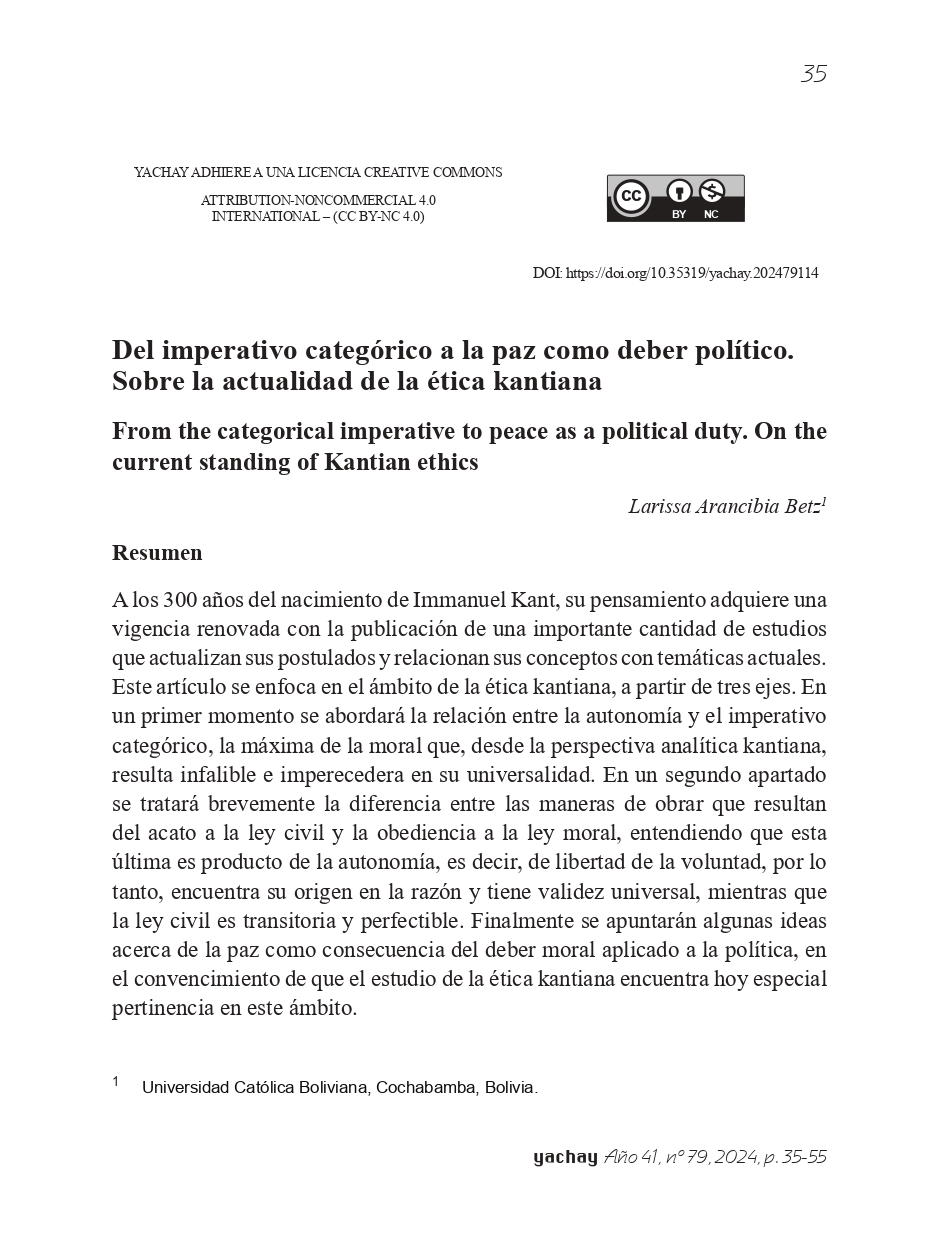From the categorical imperative to peace as a political duty. On the current standing of Kantian ethics
DOI:
https://doi.org/10.35319/yachay.202479114Abstract
300 years after the birth of Immanuel Kant, his thought is regaining validity with the publication of a significant number of studies that update his postulates and relate his concepts to current issues. This article focuses on the field of Kantian ethics along three axes. The first is the relationship between autonomy and the categorical imperative, the moral maxim that, according to Kantian trascendental analytics, is infallible and timeless in its universality. In a second section, we will briefly discuss the difference between the actions that result from following the civil law and from obeying the moral law, on the understanding that the latter is a product of autonomy, that is, freedom of the will, because it has its origin in reason and has universal validity, whereas the civil law is transitory and mistakable. Finally, some ideas on peace as a consequence of moral duty applied to politics will be presented, in the conviction that the study of Kantian ethics has a particular relevance in this field today.
Downloads
References
Boehm, Omri. “Wie müssen rational sein, um nicht von außen kontrolliert zu werden”. En: Philosophie Magazin, N° 28, 18-21. Berlin: Philomagazin, 2024.
Boehm, Omri y Daniel Kehlmann. Der bestirnte Himmel über mir. Ein Gespräch über Kant. Berlin: Propyläen, 2024.
Gadamer, Hans-Georg. Gadamer erzählt die Geschichte der Philosophie. Neapel: Istituto Italiano per gli Studi Filosofici, 2000, https://www.youtube.com/watch?v=3GOsFsnLQw0&list=PL5rv0LxqofNqhH5Wq4bPL5rv0LxqofNqhH5Wq4bSEzGPUnNji3gvd&index=3.
Horst, Gerfried. “Kant era prusiano oriental”. Berlin: Freunde Kants und Königsbergs e.V., 2009, acceso el 07 de marzo de 2023, https://www.freunde-kants.com/kant-era-prusiano-oriental.
Kant, Immanuel. La paz perpetua. Madrid: Calpe, 1941.
Kant, Immanuel. Fundamentación de la metafísica de las costumbres. Madrid: Espasa-Calpe, 1946.
Kant, Immanuel. Filosofía de la historia. ¿Qué es la ilustración? La Plata: Terramar, 2004.
Kuehn, Manfred. Kant: A Biography. Cambridge: Cambridge University Press, 2001.
Willaschek, Marcus. Kant. Die Revolution des Denkens. Múnich: C.H. Beck, 2023.

Published
How to Cite
Issue
Section
License
Copyright (c) 2024 Yachay

This work is licensed under a Creative Commons Attribution-NonCommercial 4.0 International License.
De acuerdo a la Ley 1322 de Derechos de Autor en Bolivia, la Revista YACHAY respeta los derechos morales de los autores, amparando la parternidad e integridad de sus obras publicadas.




